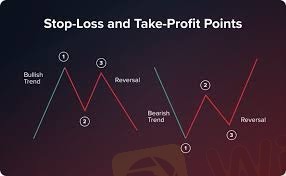
2024-12-24 00:46
업계에서Stop-loss vs reduced exposure: Managing Christmas
#reducingvsclosingpositionsaroundchrismasmichriches#
*Stop-Loss Strategy*
1. *Set a stop-loss level*: Determine a price level at which to automatically close a position if it moves against you.
2. *Limit potential losses*: Stop-loss orders can limit potential losses if the market moves against your position.
3. *Risk management*: Stop-loss orders can help manage risk by automatically closing positions that reach a certain loss threshold.
4. *Potential drawbacks*: Stop-loss orders can be triggered by market volatility, resulting in unnecessary closures.
*Reduced Exposure Strategy*
1. *Reduce position sizes*: Decrease the size of your positions to minimize potential losses.
2. *Diversify portfolios*: Spread investments across various asset classes to reduce reliance on individual assets.
3. *Lower risk*: Reducing exposure can lower potential losses if the market moves against your positions.
4. *Potential drawbacks*: Reducing exposure may also limit potential gains if the market moves in your favor.
*Key Differences*
1. *Risk management approach*: Stop-loss strategies focus on limiting losses through automatic closures, while reduced exposure strategies aim to minimize losses by reducing position sizes.
2. *Market volatility*: Stop-loss strategies can be triggered by market volatility, whereas reduced exposure strategies are less susceptible to market fluctuations.
3. *Potential gains*: Reduced exposure strategies may limit potential gains, whereas stop-loss strategies do not directly impact potential gains.
*Choosing the Right Strategy*
1. *Risk tolerance*: Consider your risk tolerance and adjust your strategy accordingly.
2. *Market analysis*: Evaluate market conditions and adjust your strategy based on potential market movements.
3. *Trading goals*: Align your strategy with your trading goals, whether prioritizing risk management or potential gains.
Ultimately, a combination of both stop-loss and reduced exposure strategies may be the most effective approach to managing Christmas trading risk.
좋아요 0
FX1985175646
거래자
인기있는 콘텐츠
시장 분석
투자주체별매매 동향
시장 분석
유로존 경제 쇠퇴 위기 직면
시장 분석
국제 유가는 어디로
시장 분석
미국증시 레버리지(Leverage)·인버스(Inverse)형의 ETF, 최근 사상 최대 신
시장 분석
투기장 된 원유 ETL...첫 투자위험 발령
시장 분석
RBNZ 양적완화 확대
포럼 카테고리

플랫폼

전시회

대리상

신병 모집

EA

업계에서

시장

인덱스
Stop-loss vs reduced exposure: Managing Christmas
 나이지리아 | 2024-12-24 00:46
나이지리아 | 2024-12-24 00:46#reducingvsclosingpositionsaroundchrismasmichriches#
*Stop-Loss Strategy*
1. *Set a stop-loss level*: Determine a price level at which to automatically close a position if it moves against you.
2. *Limit potential losses*: Stop-loss orders can limit potential losses if the market moves against your position.
3. *Risk management*: Stop-loss orders can help manage risk by automatically closing positions that reach a certain loss threshold.
4. *Potential drawbacks*: Stop-loss orders can be triggered by market volatility, resulting in unnecessary closures.
*Reduced Exposure Strategy*
1. *Reduce position sizes*: Decrease the size of your positions to minimize potential losses.
2. *Diversify portfolios*: Spread investments across various asset classes to reduce reliance on individual assets.
3. *Lower risk*: Reducing exposure can lower potential losses if the market moves against your positions.
4. *Potential drawbacks*: Reducing exposure may also limit potential gains if the market moves in your favor.
*Key Differences*
1. *Risk management approach*: Stop-loss strategies focus on limiting losses through automatic closures, while reduced exposure strategies aim to minimize losses by reducing position sizes.
2. *Market volatility*: Stop-loss strategies can be triggered by market volatility, whereas reduced exposure strategies are less susceptible to market fluctuations.
3. *Potential gains*: Reduced exposure strategies may limit potential gains, whereas stop-loss strategies do not directly impact potential gains.
*Choosing the Right Strategy*
1. *Risk tolerance*: Consider your risk tolerance and adjust your strategy accordingly.
2. *Market analysis*: Evaluate market conditions and adjust your strategy based on potential market movements.
3. *Trading goals*: Align your strategy with your trading goals, whether prioritizing risk management or potential gains.
Ultimately, a combination of both stop-loss and reduced exposure strategies may be the most effective approach to managing Christmas trading risk.
좋아요 0
나 도 댓 글 달 래.
제출
0코멘트

댓글이 아직 없습니다. 첫 번째를 만드십시오.

제출
댓글이 아직 없습니다. 첫 번째를 만드십시오.